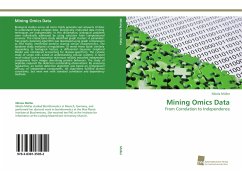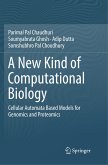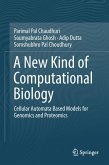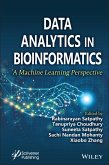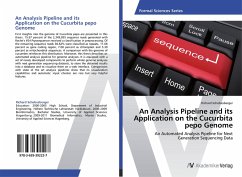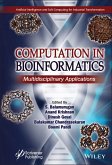Biological studies across all omics fields generate vast amounts of data. To understand these complex data, biologically motivated data mining techniques are indispensable. In this dissertation, biological problems were individually addressed by using solutions from computational sciences. The interactome study identified graph clusters: A parameter-free graph-clustering algorithm was developed using graph compression to find highly interlinked proteins sharing similar characteristics. The lipidome study analyzed co-regulations: To reveal those lipids similarly responding to biological factors, a differential Gaussian Graphical Model was introduced accounting for disease-specificity. The cytome study of single cells aimed at understanding cellular systems: A novel noise robust source separation technique reliably extracted independent components from images describing protein behaviors. The study of peptides required the detection outstanding observations: By assessing regularities, an outlier detection algorithm was based on compression efficacy of independent components. All algorithms fulfilled diverse constraints, but were met with standard correlation and dependency methods.
Bitte wählen Sie Ihr Anliegen aus.
Rechnungen
Retourenschein anfordern
Bestellstatus
Storno

